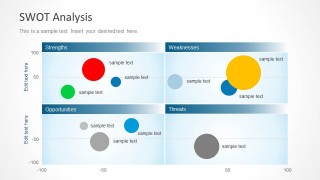Copy and paste the code below into your blog post or website
Copy URL
Embed into WordPress (learn more)
Comments
comments powered by DisqusPresentation Slides & Transcript
Presentation Slides & Transcript
Parent Workshop 1The FRIENDS for Life ProgrammePathways Health and Research Centrewww.pathwayshrc.com.auAuthor: Professor Paula Barrett© Copyright Entire Contents Dr. Paula Barrett 2012 Joanne FrehillEducational Psychologist, NEPS
AgendaProvide an overview of anxiety and resilience in childhood and adolescenceProvide information about the FRIENDS programProvide information on the current research projectQuestions
Emotional distress is...Cognitive/ThinkingWorry, negative thoughts, poor concentration, attentional biases. Physiological/BodyIncreased heart rate, muscle tension, perspiration, stomach aches, sleep difficulties, agitation.Behavioural/ActionsFlight (escape or avoidant behaviours)Fight (aggressivebehaviours)Reassurance seeking
How Common are Anxiety and Depression?Anxiety is the most common mental health concern for children and teenagers.20% of preschool children show moderate to clinically significant levels of emotional and behavioural problems (e.g. Lavigne et al. 1996).1 in 5 (20%) population experience significant emotional distress-increases with age (higher numbers for the elderly)Anxiety and depression are more prevalent than drug use, ADHD, or any other mental health problem.The Statistics…
AnxietyAnxiety is normal.The basis of Survival because it prepares our bodies to cope with dangerIn moderate amounts it helps to improve our performance Natural performance enhancing drugAdrenaline
Main Sources of Anxiety Infant anxiety - loud noises, unexpected events and unfamiliar people.Children - loss or separation from parents and specific fearsPre-Teens - death, danger and natural disasters Adolescents - social comparisons [failure, criticism, physical appearance]
ACTIVITY : Session 3 FeelingsChildren’s Workbook p13-14…Draw the outline of a person and label it with the body clues that you experience when feeling sad, worried, angry, happy, etc.
If a child or an adult worries what are the signs of excessive worry?Worry (anticipatory) AvoidanceAttention to threat/ hyper vigilanceFast and sustained physiological arousalPsychosomatic complaints Difficulty in resting and going to sleep Shyness Social withdrawalPerfectionismAppetite changesNB: Will vary across culture and individuals
they have a significant impact on your life they are beyond developmental appropriatenessthey cause significant distressthey have been present for long periodsthey cause significant interferenceEmotions become challenging when… Barriers that prevent us from thinking in helpful ways and paying attention to positive things around us.
Factors associated with a vulnerability for one to experience severe emotional distressTemperament - Sensitivity/low thresholds for stressTraumatic experiencesDevelopmental challengesRisk Factors
Scientific proven resilience skillsAttachment/AffectionHow we pay attentionPositive thinking styleSupport networks (extended family, community and friendships)Health factors (sleep, daily physical activity, healthy eating)Skills taught in evidenced based prevention programs (FRIENDS programs)Protective Factors
ResilienceResilience = to spring back, or reboundOxford DictionaryAbility to overcome adversity; achieving good outcomes regardless of life events or circumstances.The benefits of resilience:- “Children who are emotional and socially skilled are more successful at school (Durlak et al., 2011)
There is a growing recognition of the important contribution schools make to the psychological wellbeing and emotional health of children (Stallard, 2010)Schools can have a key role in the provision of prevention and early intervention programmes for childhood anxietyWhat can we do to build children’s resilience?
The FRIENDS programs range from children of 4 years right through to adults/elderly. Each program is similar in content however are all age appropriate and have additional techniques for each stage of development.Fun Friends (4 to 7 years)Friends for Life (8 to 11 years)My Friends Youth (12 to 15 years)Resilience for Life (16+)The FRIENDS Programs14
What arethe FRIENDS programmes ?They have been developed by world-renowned child psychologist Dr. Paula Barrett. Programme consists of ten structured sessions which will be delivered to the whole classChildren are taught how to identify anxious feelings; how to relax; how to change unhelpful thoughts; and how to overcome everyday problems.Each child has an activity based workbookSessions involve group work, role play, workbook exercises, games and interactive activitiesAddresses objectives in all strands of the SPHE curriculum
Why do we use the word “FRIENDS”?Because:Our body is our friendWe need to be a good friend to ourselves We can make friends Talking to our friends is importantFRIENDS is an acronym for the skills and strategies taught in the programFor Life: We need to use these skills throughout the rest of our lives when faced with challenges
Feelings.Remember to Relax. Have quiet time.I can do it! I can try my best!Explore Solutions and Coping Step Plans. Now reward yourself! You’ve done your best!Don’t forget to practise.Smile! Stay calm and talk to your support networks!The FRIENDS acronym
How can you help?Families and caregivers play a vital role in the development and maintenance of the skills taught in the FRIENDS program.Each week your child will be introduced to specific skills to help build their resiliency. These skills need to be reinforced both during the group and in the home environment in order for change to occur.
Research Evidence…One of the most robustly supported programmes for anxiety difficultiesOnly programme of its kind recommended by the World Health Organisation Has been translated into 12 languages“Most robustly supported curriculum embedded programme for internalising difficulties…particularly effective in helping all students regardless of risk status” (Cooper, NCSE, 2011)
Testimonials from Irish parents…“Excellent effect. My daughter has been seen by a play therapist in Temple Street hospital for a number of years because of her fear of needles. She went for a blood test without preparation from her play therapist a couple of weeks ago. I believe because she was able to deal with her anxiety herself! It was amazing the change in how she coped and even though she was a bit anxious she didn't let it get her."
Testimonials from Irish parents…"The programme gave her more strategies for dealing with problems. She still remembers the calming techniques, like the milkshake.“"My son was calling out every night when he woke up but with the help of the relaxation exercises and the program, he learned to settle himself back to sleep."
Testimonials from Irish parents…"I found the program very good for my daughter. She seems to have more confidence in speaking to adults that would not be close family members. What a pity it can't be run in all classes, all children would benefit greatly from this course. Thank you so much"
Are there any questions about the program?





